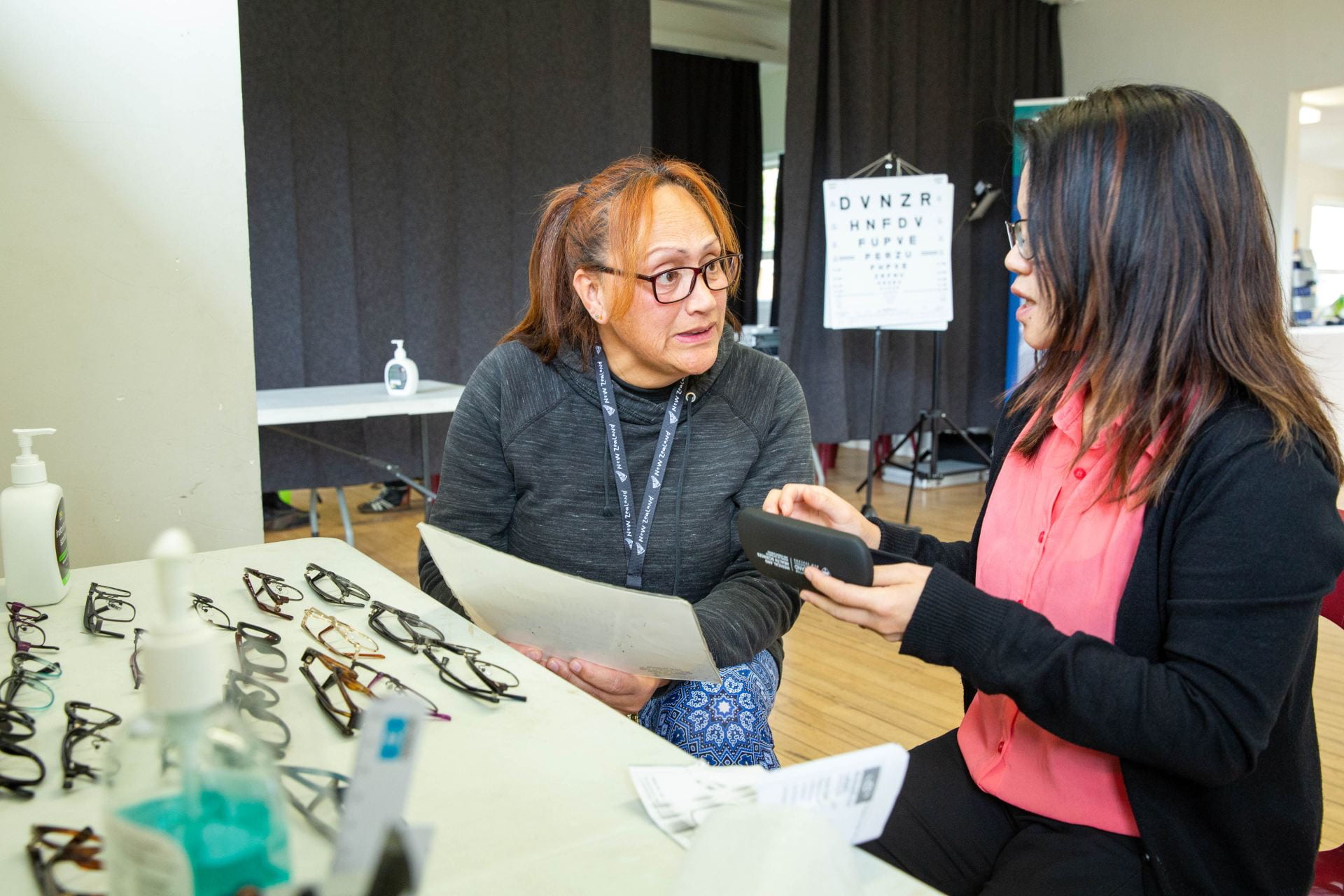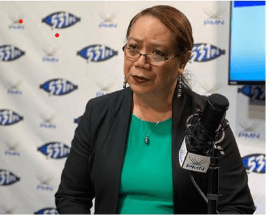
Diabetes and Sensory Health Study
Understanding and strengthening services that support healthy ageingIn the second half of 2025, we will begin collecting data for our Diabetes and Sensory Health (DaSH) study. A multi-disciplinary project, the study aims to support healthy ageing in New Zealand, with a focus on improving access to health services for people living with eye, hearing, or foot problems, particularly if they also have diabetes.
Making sense of sensory care in Aotearoa
In this study, we aim to learn how many adults in our study locations are living with diabetes and sensory health conditions relating to eye, hearing and foot health.
We also aim to find out if services for these conditions are accessible.
With no current population-level data on these conditions nor on the accessibility of services for these conditions, we will use the information and insights gathered during the study to help inform more equitable health services.

Who will participate?
This difference in the age profile of recruited participants is because some health conditions typically begin at an earlier age for Māori compared to non-Māori.
What is involved?
People who need further testing or treatment will be referred to the health services that they need. After six months, we will measure how many people were able to access this care, and what the outcome was.
Prior to the field work commencing, researchers will engage with communities and service providers in each study region to explore the provision of diabetes, eye, hearing, and foot services. The team will take study findings back to communities and service providers to help identify service factors that promoted or inhibited access and to recommend how to improve access and outcomes.
The DaSH team
The DaSH study is a collaboration between the Community Eye Health team and researchers with clinical expertise in audiology, podiatry, primary care, and diabetic medicine, as well as advisors with methodological expertise in Kaupapa Māori research, epidemiology and biostatistics.
The research team is working closely with communities, service providers, professional associations and training institutions.
What do we already know?
This early work gave us a snapshot of eye health needs among three population groups living in this area: Māori and Pacific people aged 40+ years, and other New Zealanders aged 50+ years.
We observed large unmet need in this community. While many people had distance or near vision impairment, many also expressed difficulty in accessing eye care and obtaining custom-made spectacles to correct their vision.
The pilot study also helped us understand the barriers that prevent people from participating in research projects like ours. By recruiting people door-to-door and discussing their concerns, we now have a better understanding of how to reach and recruit people from different population groups.
Testing our survey on a small group of people also gave us an opportunity to work with different researchers, clinicians, and community groups. It showed us how important a collaborative approach will be, as we embark on the larger study.
Judith, a pilot study participant, talks about her eye health, while visiting the pop-up eye clinic at Te Whare Piringa community centre in Glen Innes.
Looking back on past achievements: One research participants’ perspectives on eye care in Aotearoa
"Life is wonderful for me, I am confident now when I have my new glasses. It gave me a new life." Before she participated in the Community Eye Pilot Study, Stefanie Falwasser had never had her eyes checked by an optometrist or doctor. That all changed in 2021,...
DaSH study pilot takes off in Onehunga
In mid-July, the DaSH (Diabetes and Sensory Health) team completed the pilot of our long-awaited DaSH study – a multi-disciplinary project that aims to improve health services for people with eye, hearing, or foot problems, particularly if they also have diabetes....
Behind the scenes of the Community Eye Pilot Study
In July 2021, the Community Eye Health team conducted a pilot eye health survey in the Glen Innes, Panmure and Ōrākei areas of Auckland. This survey gave us the opportunity to collect information about the state of eye health in a small group of New Zealanders,...
A view from the Pacific: a conversation about eye care with Telusila Moala-Mafi Vea
A pilot eye health survey and eye exams in East Central Auckland (Orakei, Panmure and Glen Innes) on Maori and Pacific people uncovered significant unmet need among three population groups living in this area. Telusila Moala-Mafi Vea is the Community Survey...
NZ Optics: Door-knock study uncovers unmet need
Auckland University researchers have conducted a pilot eye health survey and community eye exams in east-central Auckland, uncovering significant unmet need and serious eye disorders, including retinal tears and severe cataracts. Read the full story in the...
Research team

Jacqui Ramke
Associate Professor

Pushkar Silwal
Research Fellow

Jaymie Rogers
Research Fellow

Claire O'Shea
Podiatrist & PhD candidate

Deborah Ewuru
PhD candidate
Collaborators
School of Population Health, The University of Auckland:
Associate Professor Matire Harwood, Dr Arier Lee
School of Medicine, The University of Auckland:
Professor Rinki Murphy
Department of Audiology, The University of Auckland:
Dr Alehandrea Manuel
Te Whatu Ora:
Michele Garrett, Tarati Blair-Hunt
London School of Hygiene and Tropical Medicine:
Associate Professor Islay Mactaggart
Thank you to our supporters
This project is funded by a Health Research Council (HRC) Project Grant, with co-funding from the Buchanan Charitable Foundation, the NZ Association of Optometrists, Rapanui Trust and New Zealand Optometric Vision Research Foundation (NZOVRF). We also thank OneSight EssilorLuxottica Foundation for providing spectacles for all eligible participants.
Thank you also to our supporters of the pilot study: the Buchanan Charitable Foundation, Peter and Rae Fehl, Blind Low Vision New Zealand, New Zealand Association of Optometrists, Essilor, and Helen Blake and Barbara Blake.





